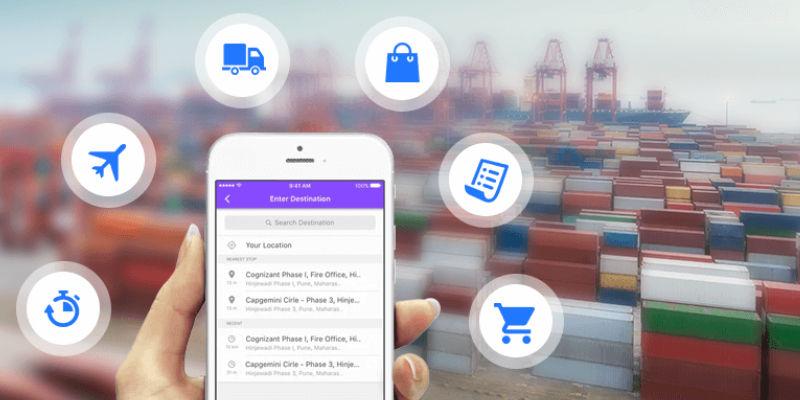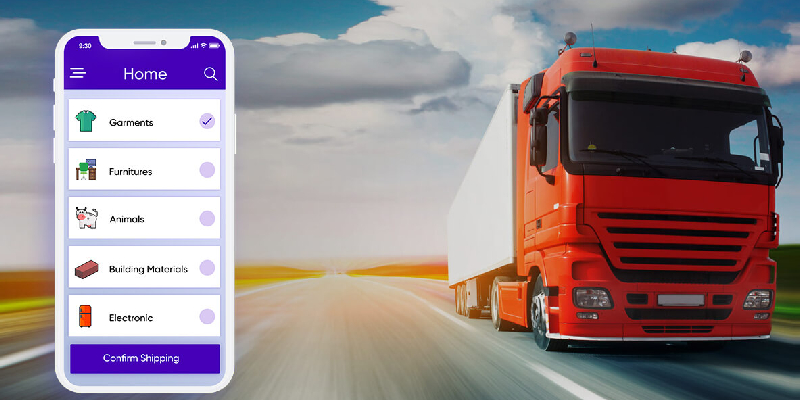
Technology Trends for Educational Apps Market
May 5, 2021
Banks And Finance Institutions Place Great Emphasis On Applications
May 14, 2021Smartphone Applications: Impacts on Logistics & Transportation Industry

With technological advances, we can switch from desktop websites to mobile apps. As a result of these changes, the position of smartphones in our daily lives is expected to increase significantly in the coming years. As a result of technological progress, the way we interact with computers is changing.
Smartphones have become an integral part of our daily lives thanks to their immersive technology and media. Thanks to their revolutionary functionality and technology, smartphones have become the most accessible source of information and service for individuals and businesses. Thanks to technological progress, smartphones are no longer just communication devices.
The rise of apps in smartphones will support industrial growth:
Smartphones perform various functions that make our lives easier, such as booking tickets, buying food, watching movies and listening to music. Today, the number of smartphone users around the world is growing. The growing number of apps on smartphones is driving industrial growth. Companies are expanding their reach in terms of the number of mobile apps for transportation available on smartphones and the functions of such apps. One study predicts that the mobile app development industry will generate $46.2 billion in revenue by 2019.
Apps on smartphones: revolutionizing the transport industry:
The availability of high-speed Internet and the attractive user interface of mobile phones have revolutionized the way we view computers. Technological progress has forced every industry to turn to digitisation. Mobile applications dominate the transport market. There has been cumulative technological progress.
How technology is changing the transportation industry globally:
The unstoppable growth of transportation has provided people with an abundance of travel and logistics options, making the process of selecting and adapting options more difficult. Recent increases in infrastructure spending and growth, on the other hand, have led to far-reaching changes. It has increased the profits of the transport industry and expanded its global network. Users are therefore looking for apps that control transport and offer user-friendly updates. Prior to the introduction of transport and mobility, small marketplaces and low demand made it easier to maintain and ship transport logistics and delivery.
Smartphone transport apps can help business owners increase efficiency and reliability. You can also encourage them to provide better customer service.

Many transport-related operations are performed using logistics and transport software such as ticket booking, courier delivery, tracking the status of fleet and courier traffic, route data, route planning, cargo booking etc.. Many of the technology-based transport and logistics companies have integrated logistics technology into their operations to better support customers, customers and government agencies.
These technologies will have a major impact on how we use transport and logistics systems. Companies with access to cutting-edge technologies will be able to personalise their offerings more precisely. Further innovations in the fields of IoT, data analysis, additive layer manufacturing and electro mobility will also change the industry. The next technological trends will be driven by uncertain technological breakthroughs.
Transportation and logistics software is useful for entrepreneurs to track employees “working hours and overtime, assign new tasks to required employees, and maintain payrolls. With the development of transport apps, courier companies can receive personalised courier-based mobile apps to simplify their complex processes. These apps include quick tracking, digital signatures, efficient management systems, push notifications, online payments, security and transparency.
Logistics management systems must provide an attractive user interface as users continue to demand and search for more features and services in the application market. To remain competitive, the development of transportation apps requires a long-term commitment from business owners and developers to resolve regular updates and usability issues.
There are many areas in which application concepts for transport and logistics are being developed. Smartphone applications for transportation are expanding rapidly, and many of these areas are being digitized. Travel and logistics networks are spread around the world, and as a result, their transport mobility has a great opportunity to grow through the adoption of these technologies, especially in rural areas.
Technologies being developed to introduce new features and use advanced technological tools in the transportation industry, such as blockchain, big data and IoT, are promising for the future.

